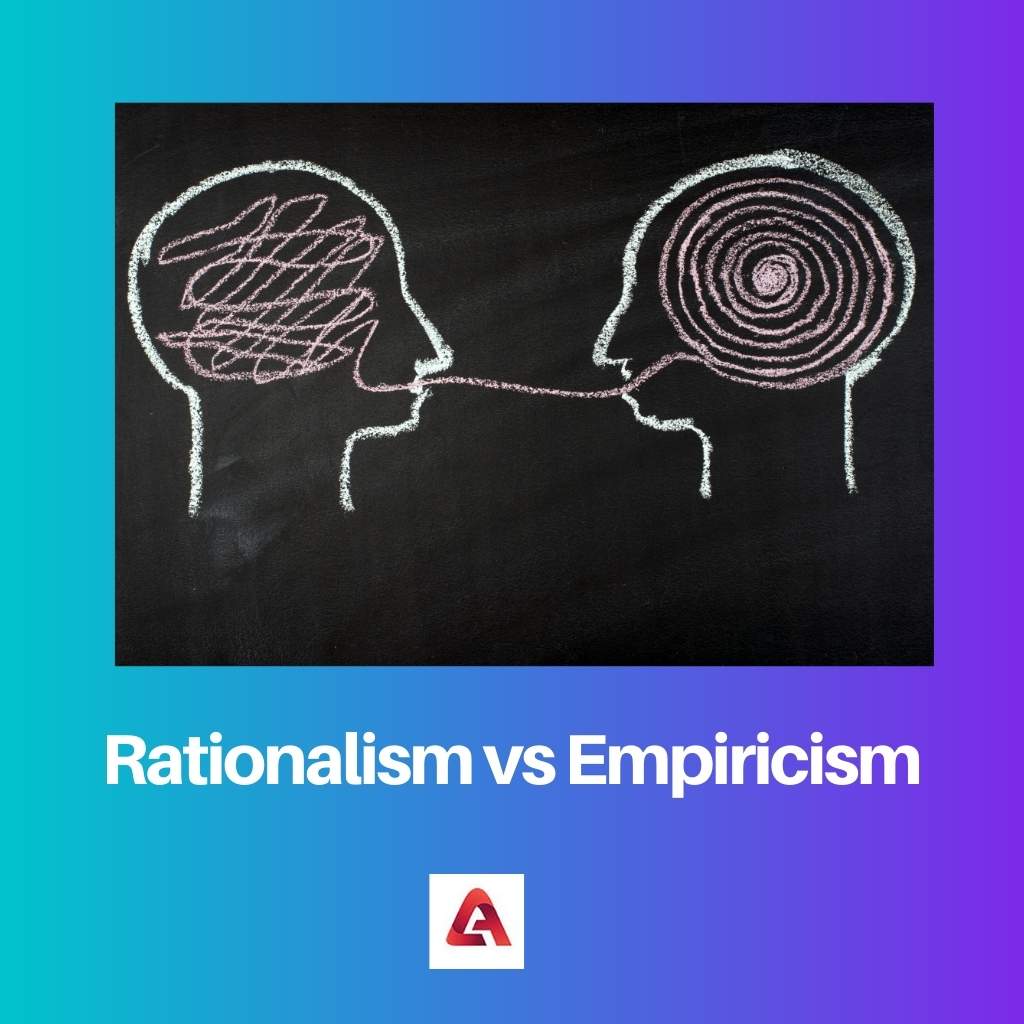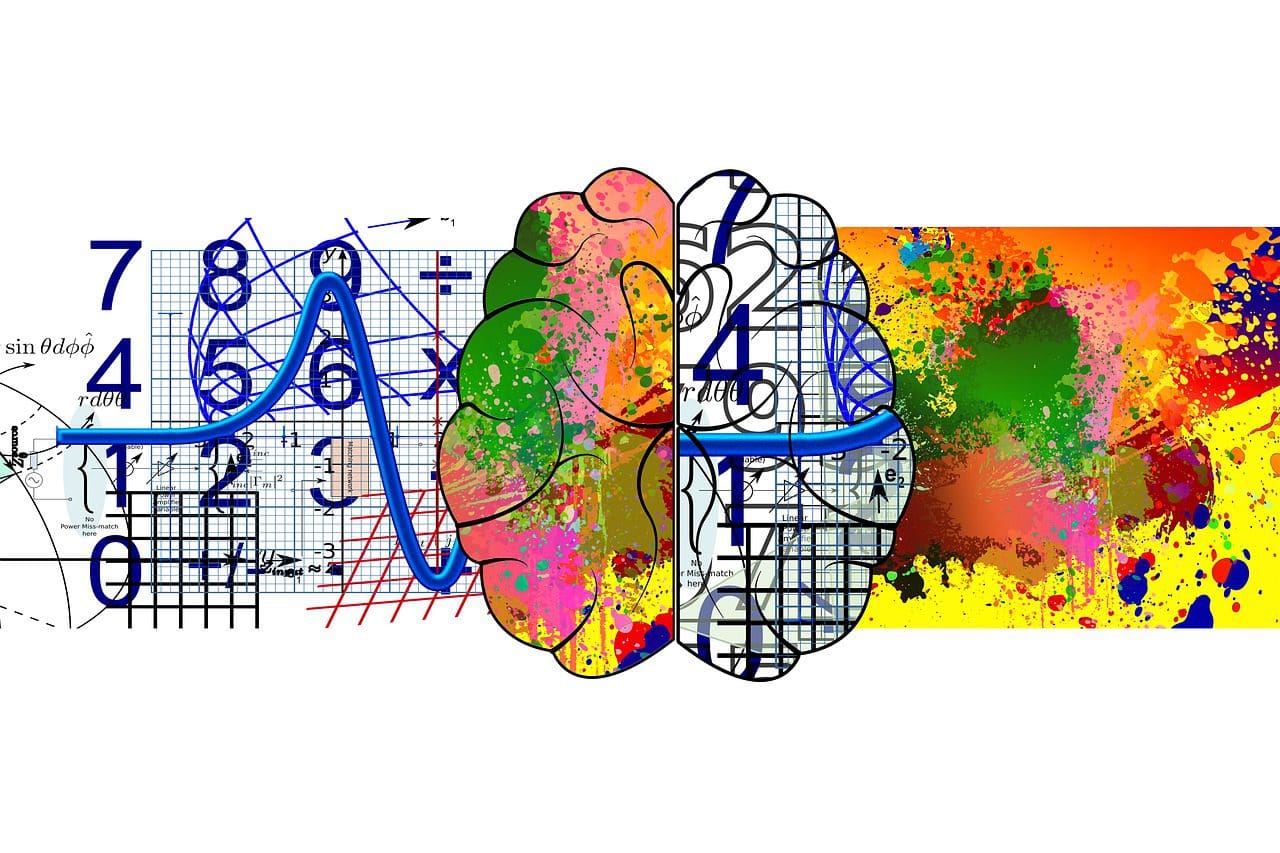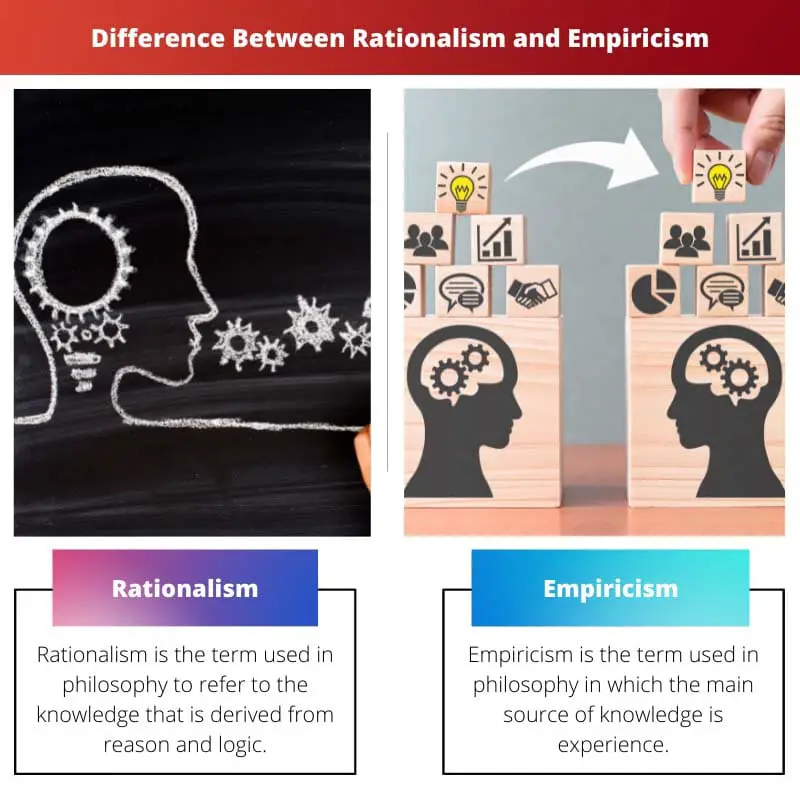Both the terms, Rationalism And Empiricism, are related to philosophy. Philosophy is the study of fundamental ideas about knowledge, reasoning, reality, and existence, a specific set of ideas.
Both the terms are used under philosophy and sound the same, but they have different meanings. Indeed, rationalism and empiricism are terms that are used as opposed. It’s an old controversy.
Key Takeaways
- Rationalism is the belief that knowledge can be gained through reason and intuition, while empiricism is the belief that knowledge comes from sensory experience.
- Rationalists believe that some knowledge is innate, while empiricists believe all knowledge is acquired through experience.
- Rationalism is associated with philosophers like Descartes and Leibniz, while empiricism is associated with philosophers like Locke and Hume.
Rationalism vs Empiricism
In philosophy, rationalism is knowledge acquired from the use of logic and reasoning. It involves using mental processes to help make sense of what is true. Empiricism is the knowledge acquired from personal experiences as gathered by the five senses of the sensory system. It involves experimentation to explain reality.

Rationalism is the term used in philosophy to refer to the knowledge that is derived from reason and logic. It is a view which appeals to reason to be a source of any knowledge.
Any justification that is given with a reason or a logic that is intellectual is rationalism. Rationalists believe that everything has logic behind it, reality has logic, and logical knowledge is correct.
Empiricism, on the other hand, is the term in which the main source of knowledge is experience and experimentation.
Rather than just an innate idea, empiricists believe that there is a shred of empirical evidence behind every knowledge.
It is a philosophy of science that emphasizes evidence, evidence that is discovered through experiments.
Comparison Table
| Parameters of Comparison | Rationalism | Empiricism |
|---|---|---|
| What is it? | Rationalism is the term used in philosophy to refer to the knowledge that is derived from reason and logic. | Empiricism is the term used in philosophy in which the main source of knowledge is experience and exp |
| Belief | Rationalists believe that reason can explain the working of the world. | The empiricists believe that evidence through experimentation can explain reality. |
| Principles | Rationalism is related to mental processes and organizing principles. | Empiricism is related to sensory experience and association principles |
| History | The history of rationalism goes far beyond to the Pythagoras’ time that is 570–495 BCE. | The history of empiricism goes to the era between 600 to 200 BCE. |
| Examples | Mathematics is an example of rationalism. | Experimental Science is an example of empiricism. |
What is Rationalism?
Rationalism is a theory of philosophy in which it is believed that reason and logic are the main sources of knowledge.
It is a methodology that says that justification or reason is the view that shows the basis of knowledge. Rationalism goes back in history to 570-495 BCE.
Rationalists believe that logic and reason can reveal the reality of the world and that some truths exist that can be grasped directly through the intellect.
Rationalism can be seen in logical reasoning, mathematics, morals and ethics, and metaphysics. Rationalists highly believe that the reason is fundamentally true, and they cannot be denied.
They believe that knowledge is independent of sensory experience.
There are three basic claims in rationalism. Out of these three claims, rationalists have to adopt at least one.
These three theses are the intuition or deduction thesis, the innate knowledge thesis, and the innate concept thesis.
In addition to these, there are two more theses, although a person can be a rationalist without adopting either of them. One is the claim of the Indispensability of Reason, and the second one is the Superiority of Reason claim.
The philosopher and historian William James criticised the theory of rationalism because it is outdated and is not in touch with reality. He opposed that the rationalist represents the world as a closed system.

What is Empiricism?
Empiricism is the term used in philosophy, which states that experimentation and sensory experience is the major source of knowledge.
Rather than ideas, empiricism emphasized the pieces of evidence. Experiments and evidence show the reality of the world, according to empiricists.
Throughout history, the theory of empiricism is described as a blank slate that is filled with experience over time.
The human mind is like a blank slate, which is empty by birth and is filled in by experience, learning, and experiments.
Knowledge is based on the experience we gain, the possibilities and probabilities of our actions, the falsification, and the experimental procedure.
The word Empirical is derived from an ancient Greek word, “empeiria”, which means experience. The history of the belief in empiricism goes far back to 600 to 200 BCE.
An ancient Indian philosopher named Kanada accepted that the two sources of knowledge are perception and inference. This is mentioned in his work called Vaisesika Sutra, which is an ancient Sanskrit text.
Empiricists believe that experience and memory develop the person and his morals.
They also believe that evidence, any kind of proof that is found by experiment, can reveal the world’s reality rather than some reason and logic.
Main Differences Between Rationalism And Empiricism
- The main source of knowledge in rationalism is reason and logic. On the other hand, the source of knowledge in empiricism is experimentation.
- Rationalists believe that reason can explain the workings of the world, the reality. In contrast, empiricists believe that evidence through experimentation can explain reality.
- Mathematics is considered the paradigm of knowledge in rationalism. While in empiricism, experimental science is the paradigm or example of knowledge.
- Rationalism is related to mental processes and organizing principles. Empiricism is related to sensory experience and association principles.
- Rationalism is theory, while empiricism is an experiment.

- https://seop.illc.uva.nl/entries/rationalism-empiricism/
- https://books.google.com/books?hl=en&lr=&id=szCaXDdhID8C&oi=fnd&pg=PR9&dq=what+is+rationalism&ots=qaTeMdh7Lm&sig=fIT22jVywRfgAoxt2JOqA5xlCy0

This philosophical debate between rationalism and empiricism is fascinating. It’s intriguing that both concepts are so similar and, at the same time, so different. I truly enjoyed reading this article.
I agree with you. I believe that our knowledge comes from a combination of both reason and experience.
This article was so informative! I never realized that rationalism and empiricism had such complex histories.
Yes, the history of these two philosophies is quite fascinating and definitely worth researching further.
I appreciate the detailed examination of the historical and conceptual foundations of rationalism and empiricism. This article offers a valuable perspective on these two influential philosophical traditions.
Definitely. The article presents a comprehensive analysis of the rationalism-empiricism debate.
Absolutely. The contrast between rationalism and empiricism is portrayed very effectively in the article.
This article is a bit too biased towards rationalism. I disagree with the view that empiricism is not compatible with the reality of the world. Empirical evidence provides valuable insights.
I tend to agree with you. I think it’s important to recognize the contributions of both rationalism and empiricism in the pursuit of knowledge.
Interesting point. Both rationalism and empiricism can offer valuable perspectives on knowledge and understanding.
An enlightening discussion of two major philosophical traditions. The article does a great job of capturing the essence of rationalism and empiricism.
As someone interested in philosophy and the history of ideas, this article is a great introduction to the debate between rationalism and empiricism. It covers the key aspects of these two perspectives comprehensively.
I agree! The article lays out the key differences between rationalism and empiricism in a clear and insightful way.
Definitely. It’s intriguing to delve into the historical and conceptual foundations of these two influential philosophies.
The debate between rationalism and empiricism has been a fascinating one throughout the history of philosophy. I don’t think the discrepancies between the two can be resolved definitively, and that’s what makes the discussion so compelling.
Absolutely. The tension between these two philosophical perspectives has led to some remarkable discussions and insights.
Agreed. They seem to represent two fundamental ways of approaching the acquisition of knowledge.
The comparison table is quite helpful in illustrating the key differences between rationalism and empiricism. It makes it easier to grasp the distinctions between the two philosophical schools.
I agree. The table provides a handy reference for understanding the nuances of rationalism and empiricism.
Absolutely. I found the table to be a great summary of the main points made in the article.